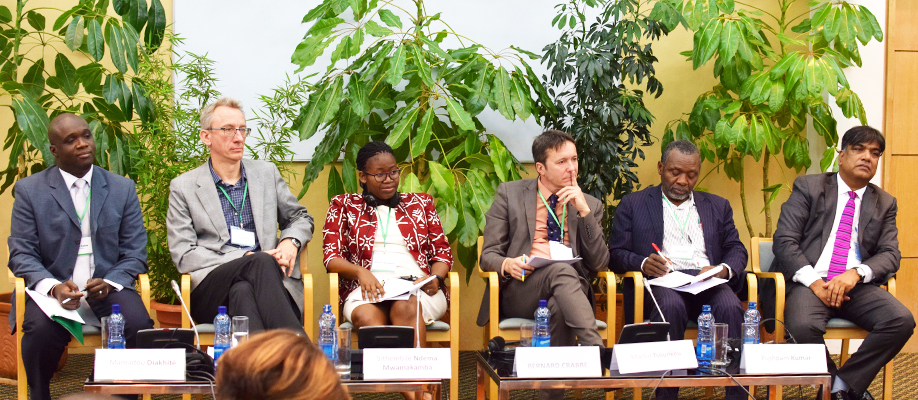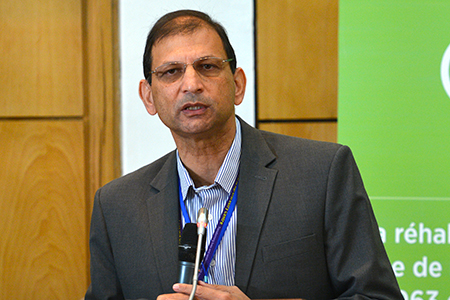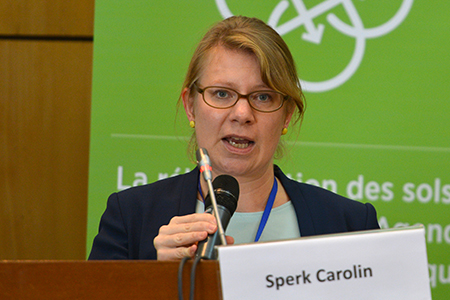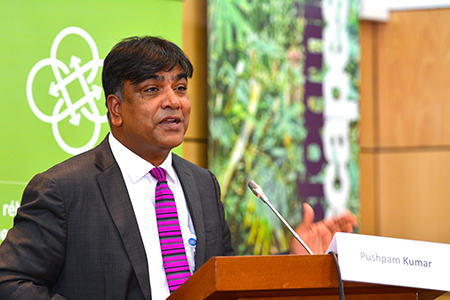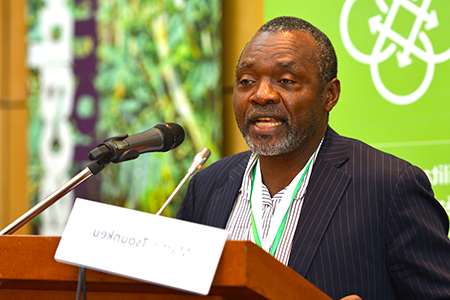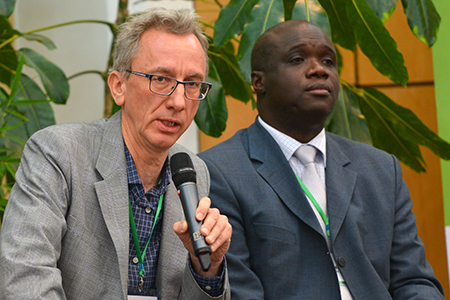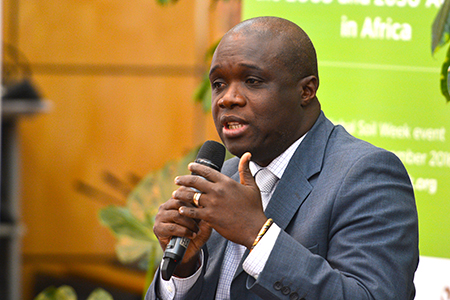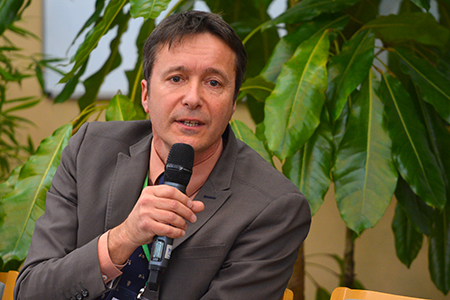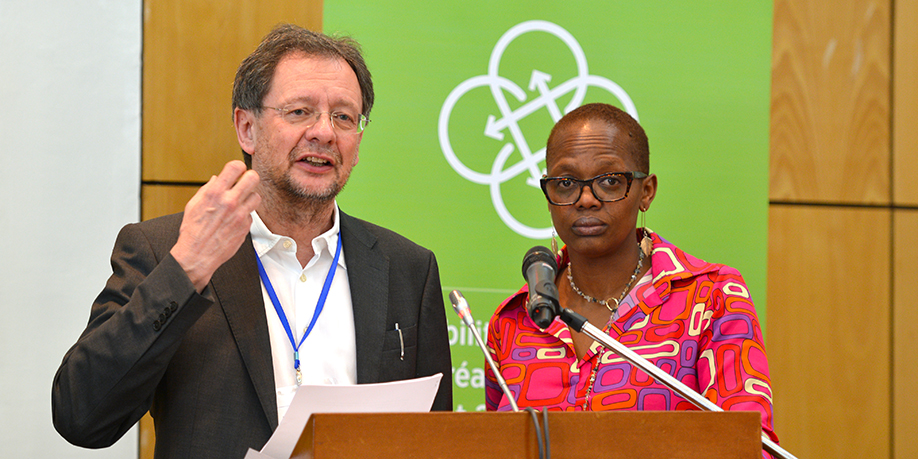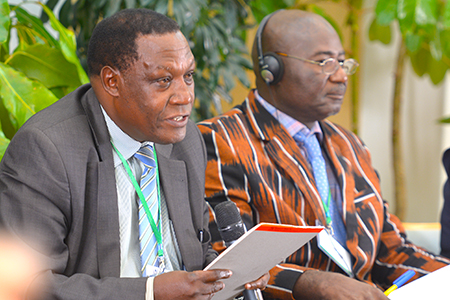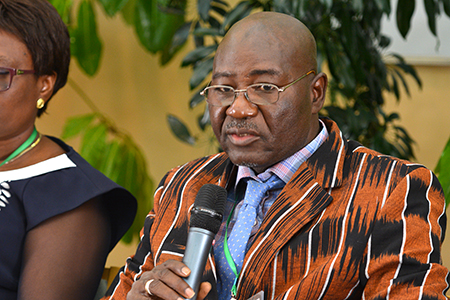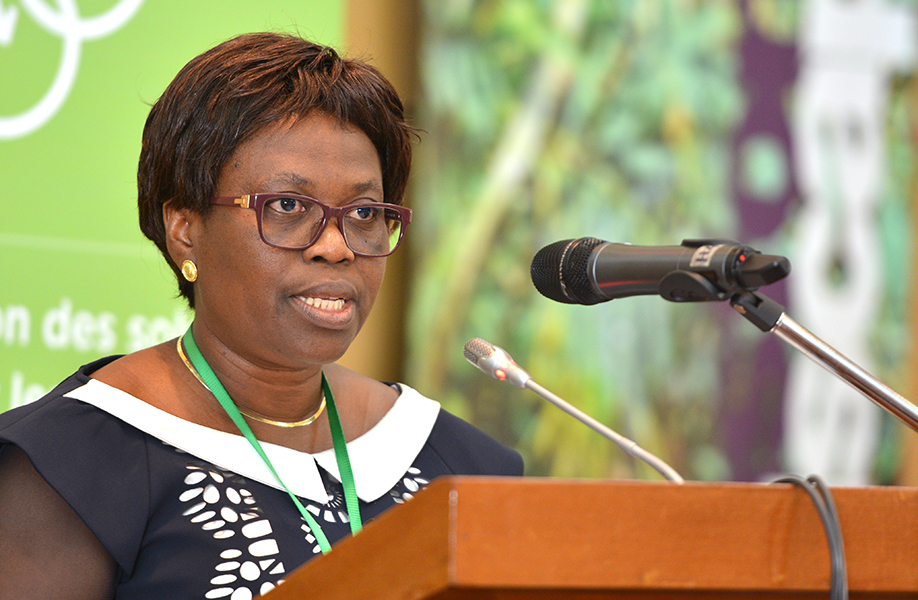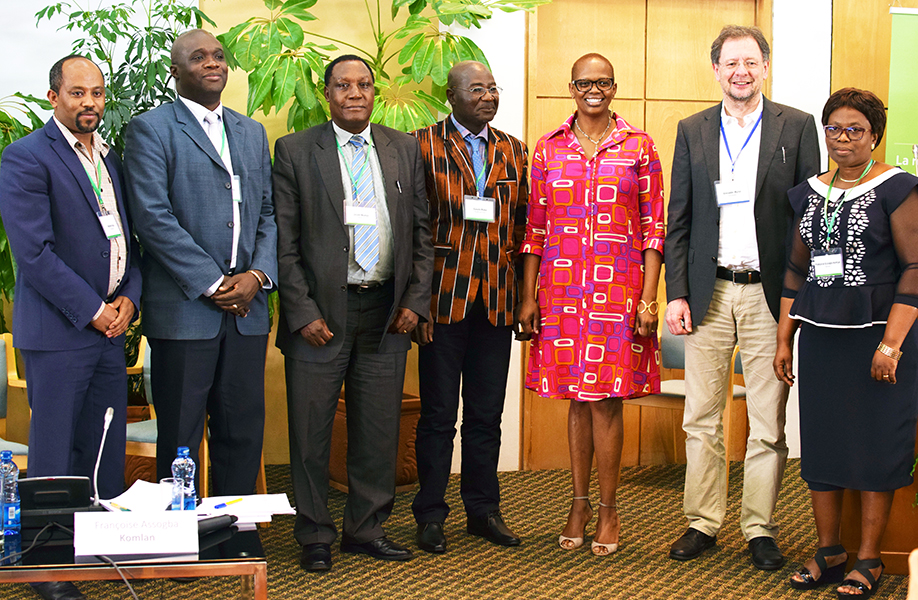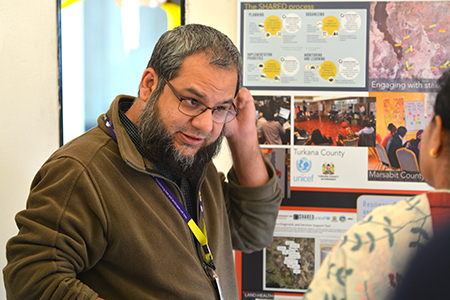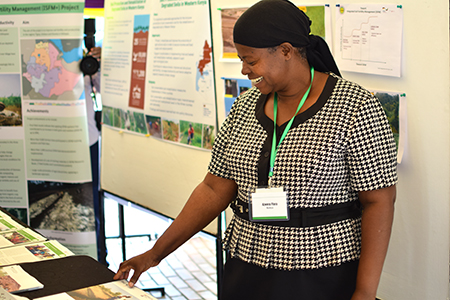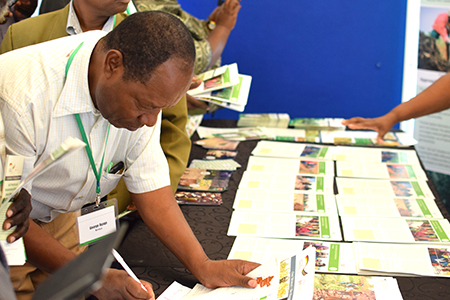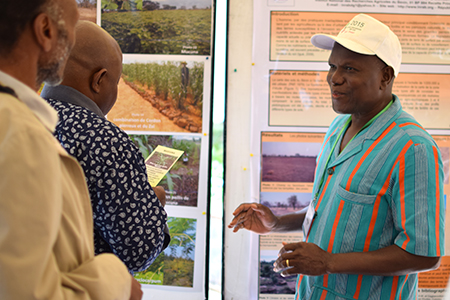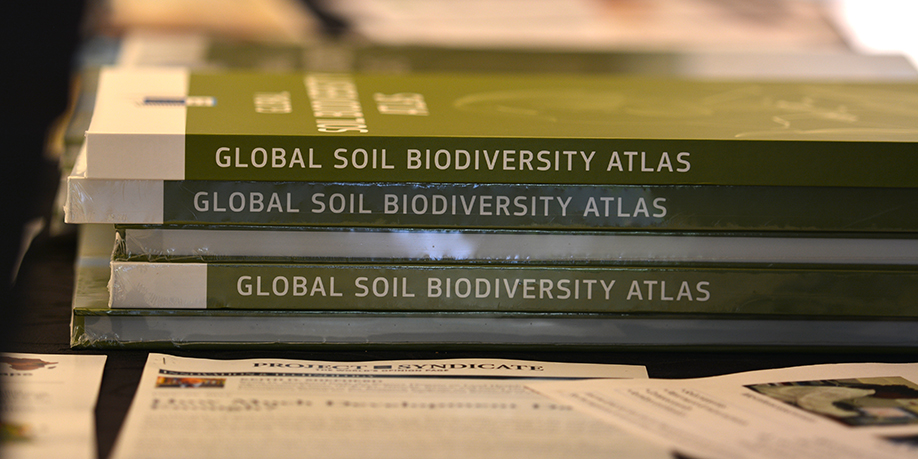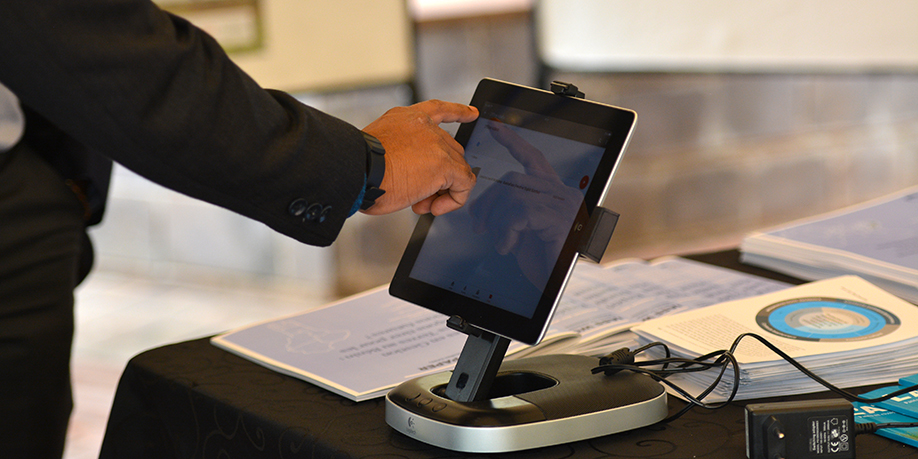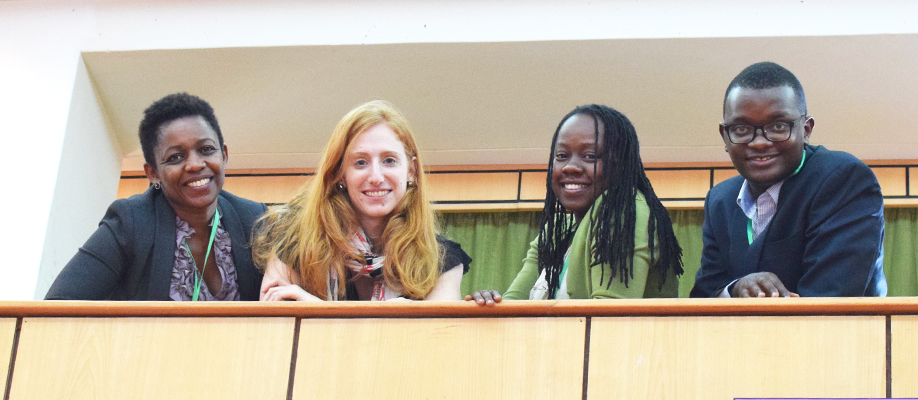Summary
On the third and final day of the first African Soil Seminar, a high-level plenary session convened to address the topic, ‘Financing Soil and Landscape Restoration: Implementing the Addis Ababa Action Agenda.’ Building on the thematic discussions on financing land restoration on Tuesday, the session, which was facilitated by the World Agroforestry Centre (ICRAF) Deputy Director-General Ravi Prabhu, discussed how to leverage the catalytic role of public resources to encourage increased investments in soil rehabilitation and benefit food-insecure farmers.
During a brief closing session, representatives of the five Co-Hosts – the governments of Kenya, Ethiopia, Benin and Burkina Faso as well as the NEPAD Agency – presented a joint statement signaling their commitment to continue to promote land restoration efforts in their countries and the region as a whole. The Seminar’s Co-Chairs, Wanjira Mathai and Alexander Müller, then presented a summary of their ‘Chairs’ Conclusions,’ highlighting key issues discussed at the Seminar.
An informal session of knowledge exchange at the “Marketplace of SLM Methods,” also took place, showcasing innovative technologies and approaches to soil and land restoration.
The Seminar concluded with an afternoon of “walking debates” around various Nairobi locations, facilitated by local community mobilizers, scholars and civil society organizations. A new addition to the Global Soil Week, the walks aim to encourage reflection on emerging sustainability themes, such as how to make food accessible and nutritional, and how to encourage healthier behaviors that integrate an understanding of climate change.
IISD Reporting Services, through its ENB+ Meeting Coverage, has provided a summary of the African Soil Seminar on the 3rd of December 2016, which is available in HTML and PDF.
Photos by IISD/ENB | Herman Njoroge Chege
For photo reprint permissions, please follow instructions at our Attribution Regulations for Meeting Photo Usage Page.
Plenary on Financing Soil and Landscape Restoration: Implementing the Addis Ababa Action Agenda
From L-R: Mamadou Diakhite, NEPAD; Christian Witt, Bill and Melinda Gates Foundation; Sithembile Ndema Mwamakamba, FANRPAN; Bernard Crabbé, European Commission; Martin Tsounkeu, Africa Development Interchange Network (ADIN); and Pushpam Kumar, United Nations Environment (UNEP)
Ravi Prabhu, Deputy Director-General, World Agroforestry Centre (ICRAF)
Carolin Sperk, Global Soil Forum, Institute for Advanced Sustainability Studies, Potsdam, Germany (IASS)
Pushpam Kumar, UNEP
Martin Tsounkeu, ADIN
Christian Witt, Bill and Melinda Gates Foundation
Mamadou Diakhite, NEPAD
Bernard Crabbé, European Commission
Sithembile Ndema Mwamakamba, FANRPAN
High-level Closing Statements: Towards 2030 and Beyond: Moving on Jointly
African Soil Seminar Co-Chair, Alexander Müller, Töpfer, Müller, Gaßner – ThinkTank for Sustainability (TMG) , makes closing remarks, watched by Co-Chair Wanjira Mathai, Wangari Maathai Institute for Peace and Environmental Studies, Kenya
Jasper Nkanya, Ministry of Agriculture, Livestock and Fisheries, Kenya
Daouda Maiga, Ministry of Agriculture, Water Resources and Fisheries, Burkina Faso
Françoise Assogba Komlan, Ministry of Agriculture, Livestock and Fisheries, Benin, delivers the Co-Hosts' Statement
Representatives of the Host Governments pose for a photo with the Seminar Co-Chairs
SLM Technologies Marketplace
Paul Kleene, GRAF, shares some information with Jules Marie Somé, GIZ
Exhibitor presenting poster on SLM Technologies
Presenter during the SLM Technologies Marketplace
SLM Technologies Marketplace participants share their contact details to receive additional information
Participants interacting with a Marketplace presenter on SLM Technologies
Global Soil Biodiversity Atlas on display at the SLM Technologies Marketplace
ENB Team Members From L-R: Wangu Mwangi ; Jennifer Covert; Wanja Nyingi; and Herman Njoroge Chege
